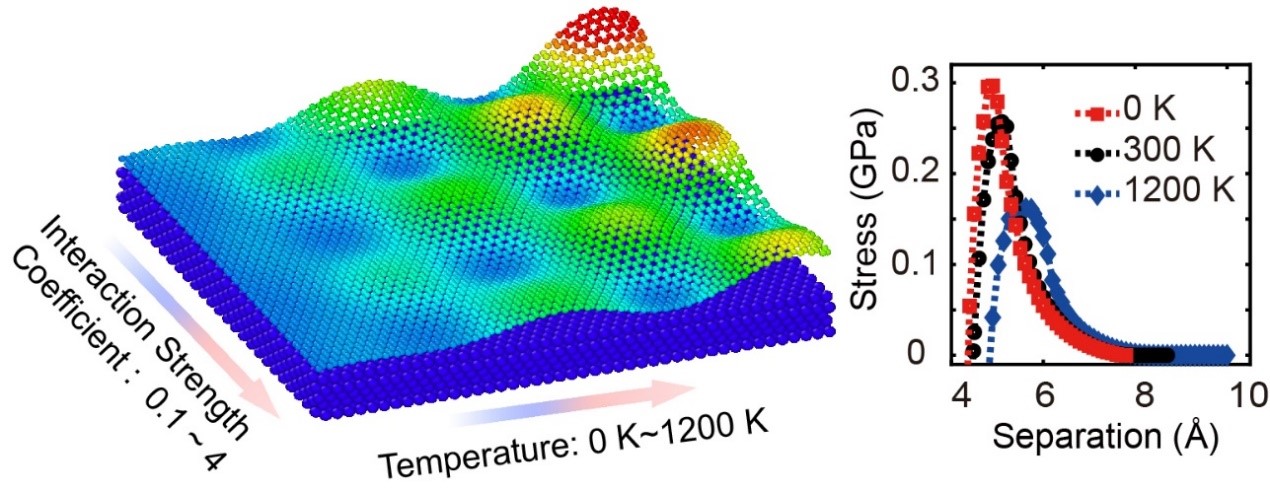The adhesion of a soft membrane plays a central role for the functionality of many biological and engineering systems, from cell adhesion to advanced materials. Researchers from LNM, Institute of Mechanics, Chinese Academy of Sciences and Huazhong University of Science and Technology revealed that the adhesion of a membrane-buffered interface could be significantly modulated due to thermally induced surface corrugations in the membrane. Not expected from classical mechanics theories, an enhancement of the adhesion range and a linear variation of the adhesion strength could be observed as temperature rises, which facilitates long-range adhesion between soft membranes like graphene sheets and lipid-bilayers with a substrate, as demonstrated in the Figure. Such surprising findings may pave the way to understand temperature-sensitive kinetics in many biological systems where the interaction of cell membranes with extra-cellular environments is pivotal.
The research was funded by National Natural Science Foundation of China (NSFC) (11425211), the Strategic Priority Research Program of the Chinese Academy of Sciences (XDB22020200), and CAS Center for Excellence in Complex System Mechanics. The simulations were conducted at the Supercomputing Center of CAS.
https://doi.org/10.1016/j.jmps.2019.103697 J. Mech. Phys. Solids 132(2019)103697.

Figure: (left) A sketch to demonstrate surface morphology of an ultra-soft membrane on substrate, where surface rippling is governed not only by the interaction strength (normalized) of membrane atoms and molecules with substrate, but also temperature. (right) The temperature-dependent traction-separation of graphene-buffered interface.